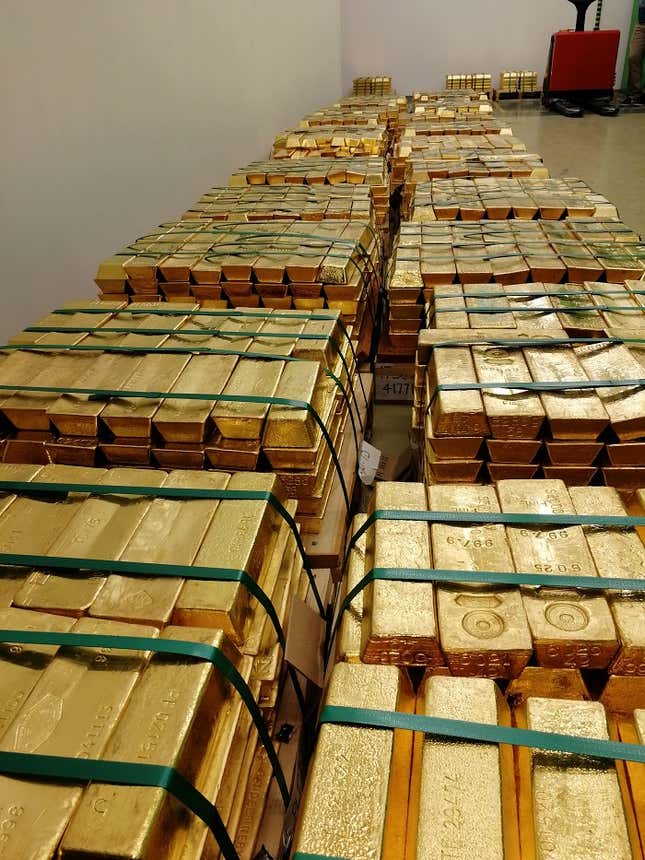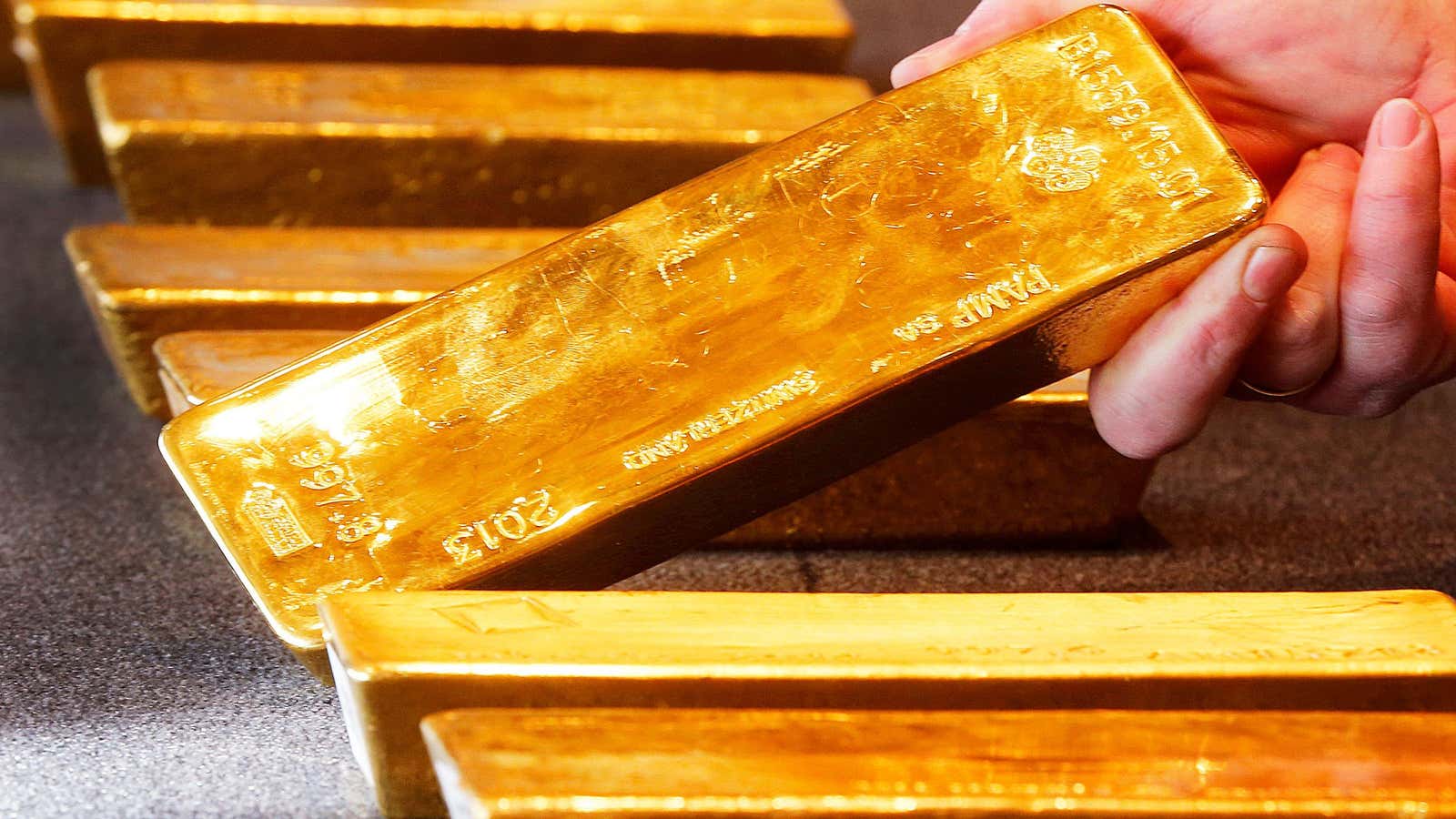For the first time since 1986, Hungary’s central bank is buying gold—in bulk. Today, the Eastern-European country announced that it had boosted its gold reserves ten-fold (link in Hungarian), up to 31.5 tons of the metal, partly in the name of financial stability and partly to keep up with its neighbors.
To celebrate the occasion, the bank released a so-called “golden book,” a gilded Make Hungary Great Again-style history of the country’s relationship with the precious metal. It features “centuries of gold coins” and, less happily, the gold stolen by Nazis during the Second World War, among other topics.
This is the latest in a series of gold acquisitions by Eastern European and Central Asian countries. Earlier this year, Poland became the first EU member to buy gold this century (paywall), accumulating nine tons over July and August. In the first six months of this year, Russia, Turkey, and Kazakhstan accounted for 86% of central bank purchases. Russia has been adding about 20 tons to its reserve each month, on average, this year. All told, central banks are buying gold for their reserves at the fastest pace in six years, according to analysts at Macquarie.
Understanding why, however, requires looking more closely at the geopolitics of the region. It’s not just that now is a particularly good time to buy (gold prices have been relatively low, due in part to a strong US dollar). More importantly, according to Alasdair Macleod, GoldMoney’s head of research, “gold is no one else’s liability.”
As tensions increase between Russia and the US, Moscow has made no bones about the fact that it’s been liquidating its US Treasury holdings and buying gold instead. Even while relations between Russia and Hungary aren’t always warm, ”the fact is that Russia is a very important trading partner for Hungary and will continue to be so,” Macleod says. “Gold is likely to be used in the future [by Russia] as a means of trade settlement.” If Russia loses access to the dollar or international payment systems, it may resort to gold.

For Hungarian prime minister Viktor Orbán and Russian president Vladimir Putin’s autocratic-leaning governments, great big heaps of gold probably don’t hurt as an image, either. (Indeed, the Hungarian central bank included a photograph of its brand new bullion along with the press release announcing its recent purchase.) Management consultant and author Peter York has written extensively about autocratic design choices. Despots and dictators love gold, he notes:
If I’ve only got one life, most dictators seem to think, “let me live it surrounded by gold.” When you have all of your country’s resources at your disposal, why not? Gold furniture, gold wall decorations, columns with gold capitals, gold taps. Bright gold, fake gold, shiny alloys for functional metalwork.
Autocrats may be fond of gold, but it’s not a purely aesthetic choice. There’s something almost dragon-like about these acquisitions—powerful entities secreting away piles of gleaming treasure, as their interest in international cooperation wanes.
